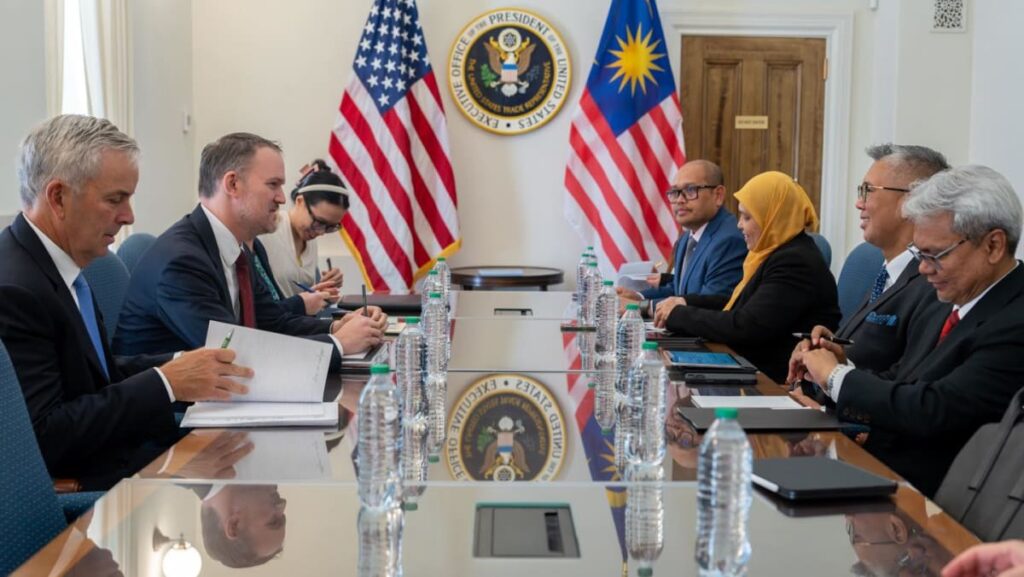RED LINES
While Tengku Zafrul said negotiations with the US will continue as Malaysia’s 25 per cent tariff is not effective yet, he stressed that Putrajaya will not budge on matters of national interest or agree on a deal just for the sake of it.
“We cumulatively engaged with our US counterparts at least on 25 separate occasions. We negotiated in good faith with considerable give and take, while standing firm on crucial matters of national interest and sovereignty,” he said.
“There were specific red lines that we would not compromise on. Complex at times, and I must say, certainly demanding, the goal has remained clear: To secure our export market access, modernise our economy and safeguard Malaysian livelihoods for the long term.”
Tengku Zafrul said these red lines involve policies and laws – including government procurement policy – designed to protect Malaysia’s national interests.
“I can’t say in detail. I mentioned about one on the digital trade. We have talked about our ability to impose digital tax – that’s a red line,” he said, referring to a 6 per cent service tax on foreign digital service providers in Malaysia.
Tengku Zafrul said his ministry is also discussing with relevant agencies and ministries that “also have their red line”.
“There are also red lines on certain issues regarding certain medical and technical standards, which we feel may not be fair,” he said.
“SENSITIVITIES” IN HALAL CERTIFICATION
The discussions with relevant ministries involve gathering feedback and agreements on various matters, including industrial and agricultural products, non-tariff barriers, as well as digital trade.
“Based on our internal calculations, our market access offers for both industrial and agricultural products cover nearly all of US requests,” Tengku Zafrul said.
“We also had to achieve a high level of consensus on issues such as economic security, purchase of US-made products, and increasing investments in the US to help balance Malaysia-US trade,” he said.
Tengku Zafrul identified some “alleged non-tariff barriers” in the area of halal certification.
“Maybe when we talk about halal certification, we can look at ensuring that the halal standards that they (the US) have are at par with our standards,” he said.
“This is one of the red lines for them, because they want to export their agricultural products. Right now, we do not allow the (import) of beef and poultry from the US. And they are asking, ‘Why?’ So, there are sensitivities there.”
Read the full article here
